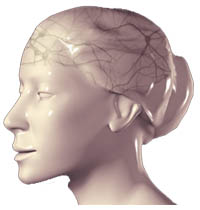The Internet, E-Business and Web 2.0 in Context
 Web 2.0 and social networks readily appear as hype, but I will argue that they are actors in a much larger drama, the emergence of the Knowledge Economy, which is currently in its third phase, Web 2.0 and social networks. By understanding the transformation of relationships among your customers and between your customers and your company, you will be in a much better position to guide your company through this area of tremendous change. Web 2.0 and social networks readily appear as hype, but I will argue that they are actors in a much larger drama, the emergence of the Knowledge Economy, which is currently in its third phase, Web 2.0 and social networks. By understanding the transformation of relationships among your customers and between your customers and your company, you will be in a much better position to guide your company through this area of tremendous change.
The Ascendance of the Knowledge Economy
The Knowledge Economy is a post-industrial economy in which value is primarily created through information, and differentiation is achieved by explicitly focusing on customer experience itself rather than on products or services. The life cycles of products and services will increasingly shorten. Leaders of companies with products and services who do not understand this face rampant commoditization from which there is no escape except through unprecedented innovation. We are in the third phase of the growth of the Knowledge Economy in which it is transforming relationships. Each phase is ongoing, but the emphasis shifts over […]
How to Increase Your Payback from Using LinkedIn
 LinkedIn is a “social” site that will prove to be of rare benefit to business executives and professionals in building individualized collaborative networks, as I explained in detail in the GHCJ Review of LinkedIn. However, LinkedIn is seriously lacking in providing a step-by-step guide to help the motivated executive to tap its real value. The functionality of the website is easy to use, but many of the finer points of LinkedIn are lost on the majority of users. This guide attempts to address that. LinkedIn is a “social” site that will prove to be of rare benefit to business executives and professionals in building individualized collaborative networks, as I explained in detail in the GHCJ Review of LinkedIn. However, LinkedIn is seriously lacking in providing a step-by-step guide to help the motivated executive to tap its real value. The functionality of the website is easy to use, but many of the finer points of LinkedIn are lost on the majority of users. This guide attempts to address that.
[…]
 Consumer empowerment and disruption are being unleashed by the many-to-many Web. As we’ve been writing for some time, Web 2.0 is giving individuals collective voices that can rival the authority of global enterprises and governments, which is disruptive because it changes the rules. We call it Consumer Empowerment. Blogs, social networking, podcasts, wikis, vlogs and their intermediaries like Technorati, MySpace and iTunes give customers the tools to create and distribute content for free—instantly and globally. When rules change, you can quickly strengthen your market position by understanding and adapting more quickly than competitors. Consumer empowerment and disruption are being unleashed by the many-to-many Web. As we’ve been writing for some time, Web 2.0 is giving individuals collective voices that can rival the authority of global enterprises and governments, which is disruptive because it changes the rules. We call it Consumer Empowerment. Blogs, social networking, podcasts, wikis, vlogs and their intermediaries like Technorati, MySpace and iTunes give customers the tools to create and distribute content for free—instantly and globally. When rules change, you can quickly strengthen your market position by understanding and adapting more quickly than competitors.
Google any specific product, phrase or service, and you will notice that customer content is growing quickly, especially in specific, customer-centric areas that organizations aren’t focused on. Customers contribute customer-relevant content because they are passionate about the subject. Growing “tribes” of individuals connect, collaborate, and become smart very quickly. Threat: large organizations are losing control over the information about their reputations, products and services. Opportunity: adding value to these customer-led conversations can increase your credibility and appeal.
Large organizations attained their market power through efficiency, the hallmark of the […]
The Knowledge Economy, Ultimate Context for Understanding the Future welcomes you to the Post-Industrial World, which turns past assumptions on their heads.
 The Knowledge Economy is a post-industrial economy characterized by a highly developed information technology industry along with overproduction and commoditization in industrial and agricultural sectors. Widespread information technology (IT) adoption among producers and consumers enables all market participants to create and share information about all aspects of economic transactions. The creation, packaging and sharing of information is termed “knowledge.” In the Knowledge Economy, information about an underlying good creates most of the good’s differentiated value. The Knowledge Economy is a post-industrial economy characterized by a highly developed information technology industry along with overproduction and commoditization in industrial and agricultural sectors. Widespread information technology (IT) adoption among producers and consumers enables all market participants to create and share information about all aspects of economic transactions. The creation, packaging and sharing of information is termed “knowledge.” In the Knowledge Economy, information about an underlying good creates most of the good’s differentiated value.
Consumer mobilization and engagement in the Knowledge Economy renders many of the Industrial Economy’s rules invalid. In the Industrial Economy, consumers had little information relative to producers, they were isolated from each other, and they had no collective voice. They were at a disadvantage as market participants. The “second stage” of the Internet, “Web 2.0,” facilitates P2P (peer to peer) information sharing, and its tools are free to use and accessible to anyone with an Internet connection. Producers […]
Insight about Human Resources in China featured speakers with decades of experience on the ground in China and offered surprising experiences. The GSB (Booth) International Round Table hosted two Asia and cross-cultural experts 16 February 2006 at Gleacher Center, “Human Resource Challenges for Multinational Corporations in China.” As is my custom, I will summarize the salient facts of the session first, which will be followed by my analysis.
This discussion was led by Deborah Lauer, former VP Global Talent Supply at Motorola who spent six years in China, and Jeffrey Reed, a 20 year veteran of Asia who headed up Unilever-Best Foods joint ventures in Pakistan and China. The talk focused on MNCs’ (multinational corporations) human resource challenges in China, both from expatriate and local talent perspectives. Many of the ideas presented corresponded to the ITA Round Table led by Dr. Wolfgang Fürniß (see China: The New Economy).
[…]
|
|
 Web 2.0 and social networks readily appear as hype, but I will argue that they are actors in a much larger drama, the emergence of the Knowledge Economy, which is currently in its third phase, Web 2.0 and social networks. By understanding the transformation of relationships among your customers and between your customers and your company, you will be in a much better position to guide your company through this area of tremendous change.
Web 2.0 and social networks readily appear as hype, but I will argue that they are actors in a much larger drama, the emergence of the Knowledge Economy, which is currently in its third phase, Web 2.0 and social networks. By understanding the transformation of relationships among your customers and between your customers and your company, you will be in a much better position to guide your company through this area of tremendous change.
 LinkedIn is a “social” site that will prove to be of rare benefit to business executives and professionals in building individualized collaborative networks, as I explained in detail in the GHCJ Review of LinkedIn. However, LinkedIn is seriously lacking in providing a step-by-step guide to help the motivated executive to tap its real value. The functionality of the website is easy to use, but many of the finer points of LinkedIn are lost on the majority of users. This guide attempts to address that.
LinkedIn is a “social” site that will prove to be of rare benefit to business executives and professionals in building individualized collaborative networks, as I explained in detail in the GHCJ Review of LinkedIn. However, LinkedIn is seriously lacking in providing a step-by-step guide to help the motivated executive to tap its real value. The functionality of the website is easy to use, but many of the finer points of LinkedIn are lost on the majority of users. This guide attempts to address that. Consumer empowerment and disruption are being unleashed by the many-to-many Web. As we’ve been writing for some time, Web 2.0 is giving individuals collective voices that can rival the authority of global enterprises and governments, which is disruptive because it changes the rules. We call it Consumer Empowerment. Blogs, social networking, podcasts, wikis, vlogs and their intermediaries like Technorati, MySpace and iTunes give customers the tools to create and distribute content for free—instantly and globally. When rules change, you can quickly strengthen your market position by understanding and adapting more quickly than competitors.
Consumer empowerment and disruption are being unleashed by the many-to-many Web. As we’ve been writing for some time, Web 2.0 is giving individuals collective voices that can rival the authority of global enterprises and governments, which is disruptive because it changes the rules. We call it Consumer Empowerment. Blogs, social networking, podcasts, wikis, vlogs and their intermediaries like Technorati, MySpace and iTunes give customers the tools to create and distribute content for free—instantly and globally. When rules change, you can quickly strengthen your market position by understanding and adapting more quickly than competitors. The Knowledge Economy is a post-industrial economy characterized by a highly developed information technology industry along with overproduction and commoditization in industrial and agricultural sectors. Widespread information technology (IT) adoption among producers and consumers enables all market participants to create and share information about all aspects of economic transactions. The creation, packaging and sharing of information is termed “knowledge.” In the Knowledge Economy, information about an underlying good creates most of the good’s differentiated value.
The Knowledge Economy is a post-industrial economy characterized by a highly developed information technology industry along with overproduction and commoditization in industrial and agricultural sectors. Widespread information technology (IT) adoption among producers and consumers enables all market participants to create and share information about all aspects of economic transactions. The creation, packaging and sharing of information is termed “knowledge.” In the Knowledge Economy, information about an underlying good creates most of the good’s differentiated value.